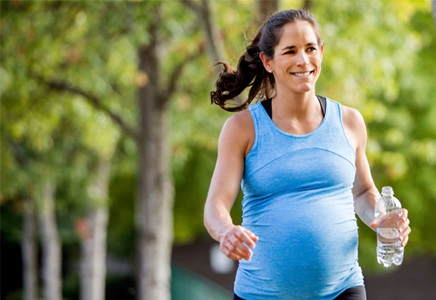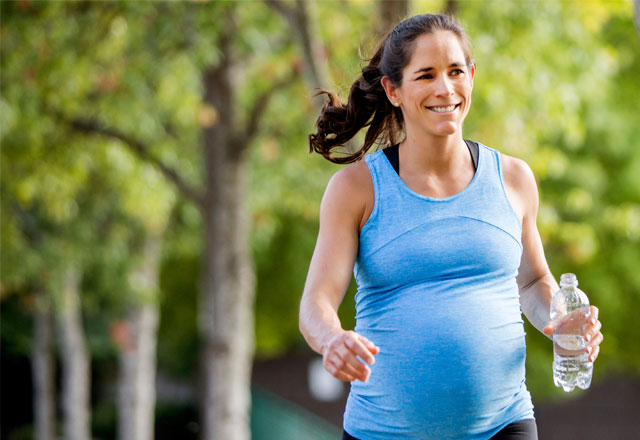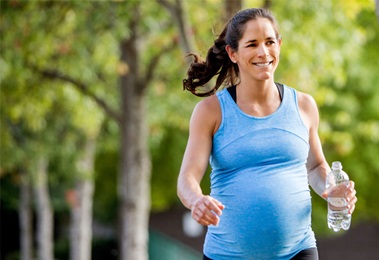Exercise During Pregnancy
Regular exercise provides multiple health benefits during pregnancy. It can help reduce the symptoms of discomfort, manage certain prenatal health conditions and help with recovery after your baby is born. For example, exercise can be used as part of treatment for women with gestational diabetes, according to the World Journal of Diabetes.
Exercise is recommended for most women, regardless of their activity level prior to pregnancy. According to the American College of Obstetricians and Gynecologists, if you exercised and were physically fit before pregnancy, you can safely continue exercising throughout your pregnancy. If you were inactive before pregnancy, you can start exercising at a moderate pace.
Before beginning or continuing an exercise program during pregnancy, consult your health care provider or midwife for recommendations on safe activities and intensity levels. Certain complications and health conditions may limit your physical activity during your pregnancy.
Conditions That May Affect Exercise During Pregnancy
Exercise may not be safe if you have any of the following conditions:
-
Cervical problems
-
Decreased fetal activity or other complications
-
Dizziness and/or fainting
-
Leaking of amniotic fluid
-
Preterm labor in current or past pregnancies
-
Vaginal bleeding
-
Shortness of breath
-
Tachycardia (heart rate over 100 beats per minute)
Ideal Exercises During Pregnancy
The following exercises are recommended during pregnancy, as long as they are performed at a moderate pace. Always speak with your health care provider to find out what’s best for your individual pregnancy.
-
Walking
-
Elliptical exercises
-
Water exercises
-
Pilates
-
Yoga (avoid hot yoga, though, as you should stay hydrated and cool during pregnancy)
Exercises to Avoid During Pregnancy
You should avoid the following activities while pregnant:
-
Bike riding or any other activity that could cause a serious fall
-
Contact sports
-
Exercise involving holding your breath during exertion, which can cause an increased intra-abdominal pressure)
-
Exercising on your back after the first trimester (due to reduced blood flow to the uterus)
-
High-altitude skiing
-
Horseback riding
-
Scuba diving
-
Vigorous exercise in hot, humid weather (pregnant women are less efficient at exchanging heat)
-
Water skiing





